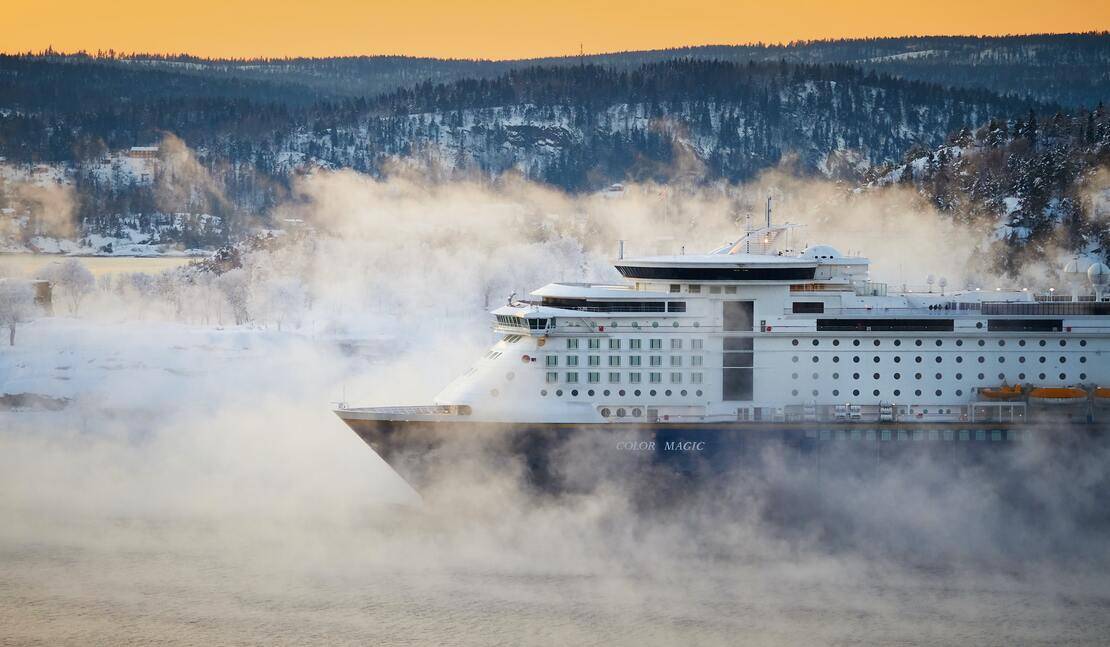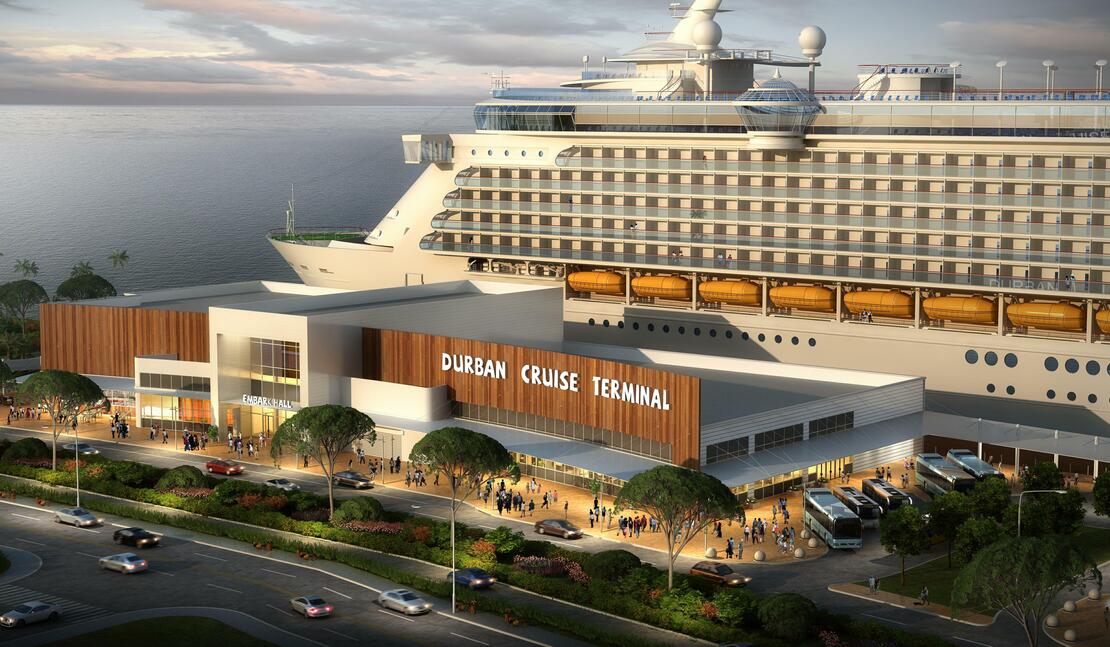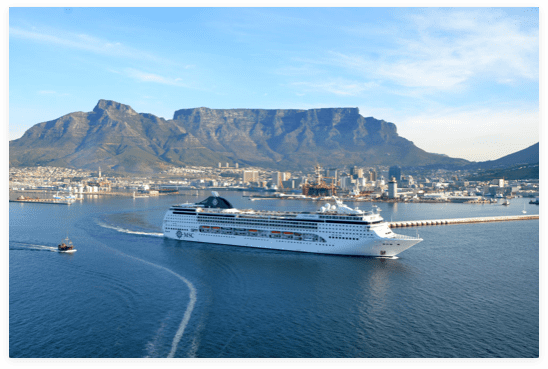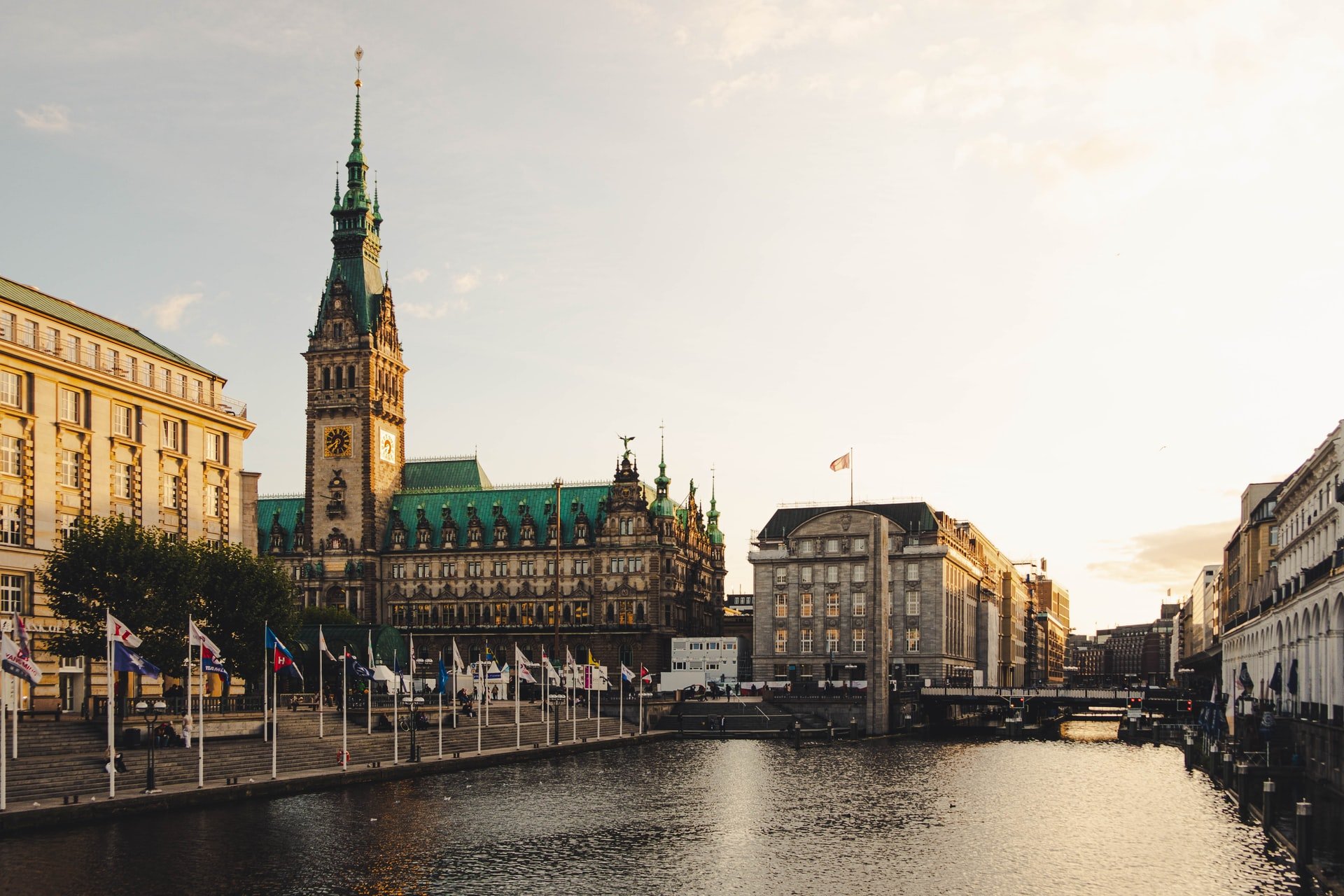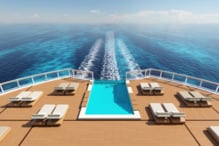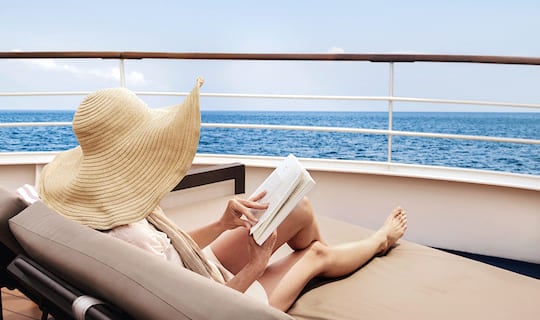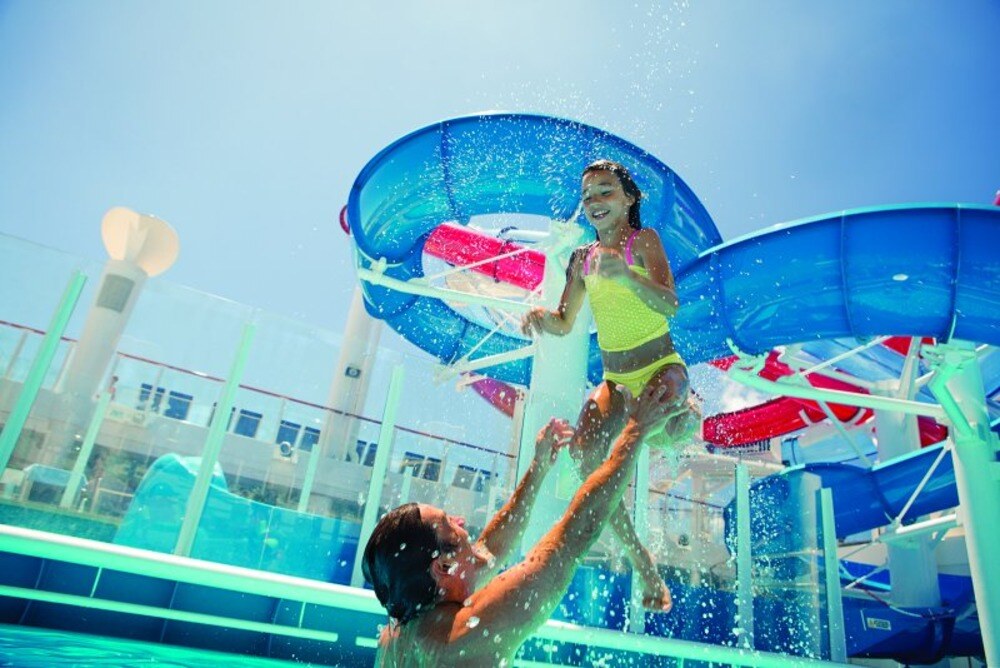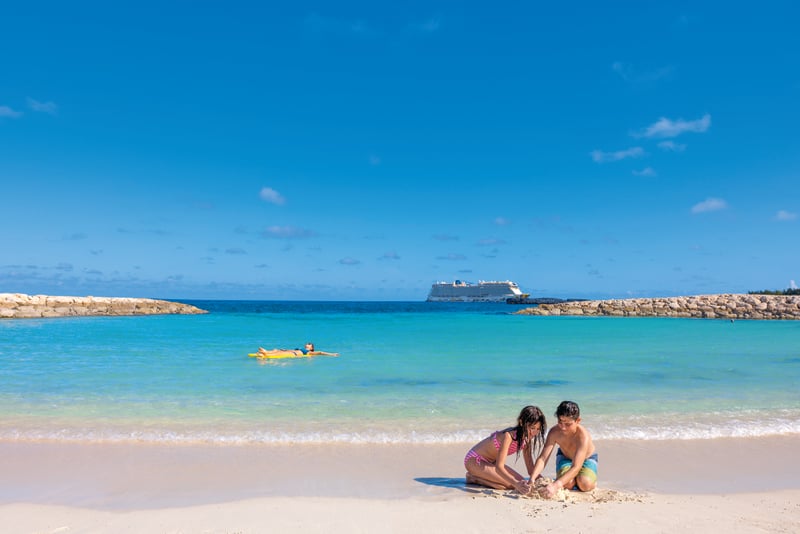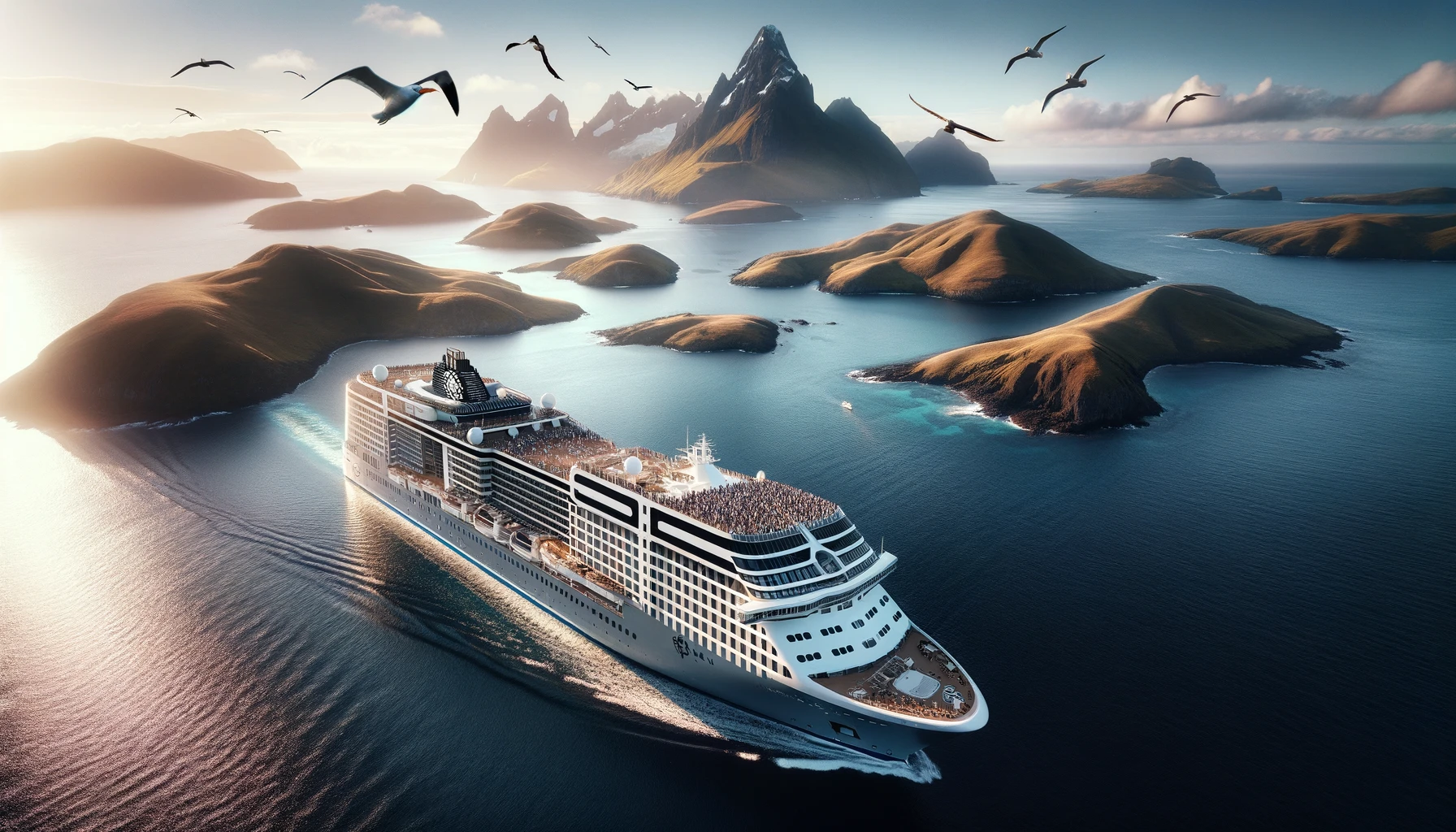With the “No-Sail” order lifted in October 2020 by the CDC, cruise lines are poised to make a return in the spring of 2021. Their return brings a new look at an age old worry — are cruise ships safe considering the COVID-19 pandemic?
In response to the pandemic, cruise ships have new safety measures including:
- An increased number of doctors and nurses aboard
- Temperature checks and socially distanced seating
- New vessel-wide safety and cleaning protocols
There are even more safety precautions cruise lines are taking in order to promote the safety of their passengers. Below we’ll go in-depth on all the new safety measures and everything else you’ll need to know before traveling safely on a cruise liner.
Added safety measures on cruise ships due to Covid-19
There are many ways cruise ships are ensuring the safety of passengers, such as requiring Covid-19 tests for all crew and passengers on the first day of sailing, and any time they leave the ship and return.
Here are some more additional safety measures cruise ships are taking:
- Temperature checks for passengers
- Socially distanced seating arrangements in restaurants and on sun decks
- Buffet experiences have been changed - guests can no longer dish-up for themselves. There are staff to assist with serving so as to stop everyone touching the utensils.
- Masks are required, especially in big public areas
There will also be cabins set aside for quarantining, if needed. In the USA, all crew will need to have Covid-19 vaccines in order to ensure the safety of both the crew and guests. This may also be the case for many other regions throughout the world.
Many cruise lines are promising improved air filtration systems as well.
These are just a few of the many safety measures cruise lines are taking now—the full list is quite extensive.
USA government safety controls for cruise ships
In order to begin sailing, the Centre for Disease Control (CDC) has put in place high standards for cruises. One cruise line, Windstar Cruises, has specifically developed a program called, “Beyond Ordinary Care,” which was created with the University of Colorado’s epidemiology department.
Some features of the new program include:
- Hospital grade air filters
- Irradiation air sterilisation
- Electrostatic sprayers to sanitise surfaces
Cruise lines aren’t taking any chances with this virus. Everything is being done with the safety of the passengers in mind, and they have consulted with universities, epidemiologists, and experts across the globe.
Do I need to have the Covid-19 vaccine in order to cruise?
Currently, a very limited number of cruise lines have not required passengers to have received the Covid-19 vaccine, but that doesn’t mean it will always be that way.
There are talks of making the vaccine mandatory for travel in Europe and in the US. More than likely that won’t take place until more people have received the vaccine.
At the moment, it is only required that you pass a Covid-19 screening test before boarding. You will be screened, tested, and subject to temperature checks throughout your voyage for both your safety and the safety of others.
Flexible cancellation policy
Because of the nature of Covid-19, most cruise lines are providing flexible cancellations, enabling passengers to move their holiday to a future date.
Along with credits, most cruise lines are also willing to give refunds on shorter notice due to the nature of the pandemic. You should feel confident and safe booking a vacation with the cruise line of your choice.
Cleanliness is a top priority
Even before the Covid-19 pandemic, many cruise lines had exemplary health standards. One example of the degree of cleanliness and attention to detail is the fact that your room is cleaned twice a day.
That is a level of cleanliness not seen in other accommodation facilities, such as hotels.
The vessel sanitation program for cruise ships
To ensure cruise lines are following safety procedures, the US Government has a program called the Vessel Sanitation Program (VSP). This program is in place to ensure cruise lines are following all safety protocols.
We anticipate that part of the VSP, a list of COVID protocols, will be added to the standard list of criteria currently in place.
In the US, the Vessel Sanitation Program is a sliding scale from 0 – 100, and anything lower than 86 is a failure.
These inspections can happen at any time, meaning ships have to maintain the strictest of standards. This ensures the cruise lines are constantly following protocols, as they cannot afford to fail the VSP.
In Europe, they have the European Inspection Program with a four letter grading.
The European inspections are based on a grading of A, B, C, D. If an inspection results in a D, the result is deemed unsatisfactory and the inspectors will perform a follow up inspection. Only the ship with a grading of A will be published on the European inspection website.
Cruise ships have an increased number of doctors and nurses onboard
All cruises also have doctors and nurses onboard who are accessible 24/7. To offset costs, in case of an emergency, it is recommended that you get travel insurance.
A number of cruise lines are increasing the number of doctors and nurses on board. Should you get sick, know that you have a competent and proficient medical team to treat you. There will be both nurses and a doctor to assist you, should you need any help during the trip.
Cruise lines preparing with mock voyages or simulated voyages
Currently in place is the framework for a “Conditional Sailing Order,” where cruise lines must demonstrate their safety measures before being granted access to take passengers onboard.
The framework for conditional sailing was created in order to ensure the safety of crew and passengers during the pandemic. It exists to make sure cruise lines are following all safety protocols.
In the US, cruise lines are conducting mock voyages with volunteers posing as travellers in order to test cruise line procedures and their ability to safely sail during the pandemic. This is part of the conditional sailing protocols.
Cruise lines already operating in Mediterranean waters successfully
In Europe, the MSC Grandiosa has been sailing since the 24 January 2021 from Genoa on a 7 night cruise itinerary. These voyages have been a great success as only 1 passenger out of the 50’000 passengers that have travelled on the vessel, tested positive onboard. MSC Cruises has the obligation to report cases onboard but does not report on cases that have been denied boarding due to being positive.
What to expect on a cruise line during the pandemic
If you are preparing to take a cruise anytime soon, here are a few things you can expect to see:
- Masks being worn by both passengers and crew.
- Dining and lounging at socially distanced tables.
- All cruise lines will check temperatures regularly, including before meals at the entrance to the dining areas.
- The pool will remain open with constant sanitation occurring.
There are also far less people on the cruises, as they operate below capacity. Expect cruise lines to embark with 70% capacity (currently on MSC Grandiosa). This will ensure that passengers are not crowded or subject to situations where social distancing is difficult.
When travelling onboard a cruise ship during Covid-19, it’s recommended that you stick with the people you are travelling with and don’t engage in activities with passengers outside of your group. This is for the protection and safety of everyone.
Expect to See fewer ports
In the Caribbean, to protect travellers at ports, many cruise lines will be stopping only at private islands owned by the cruise line to start with, or dropping ports all together and just sailing the open seas.
In Europe, the cruise lines are stopping in their regular ports, however, they are not allowing passengers to do any excursions that are not booked through the cruise line. This in order to control and test the staff involved in organising the shore excursions and to preserve safety bubbles.
When all is said and done, sailing on a huge, luxury hotel on the open ocean is still an amazing experience and a leisurely way to spend a holiday!
Procedures for cruise lines currently sailing
Ahead of America, sailing has resumed in parts of Europe and Asia.
Ships that have already begun sailing, such as German based Hapag-Lloyd cruises, are operating with a passenger capacity of 70 percent and using similar procedures to American ships:
- Before boarding each guest had to provide proof of a negative Covid test
- Cold fog machines were used to clean surfaces
After 30 completed trips there have been no cases of Covid-19!
This is a good sign for American based cruise lines. If they stick to and follow all procedures, they can create an environment where the Covid-19 virus cannot spread.
The takeaway message: are cruise ships safe?
All cruise ships are designed with safety in mind and need to follow established regulations. Everything is being done to ensure the safety of passengers, and crew. There is a lot riding on the cruise lines return to sailing, and they can’t afford to take any chances.
Cruise ships have strict safety, sanitation, and security practices already in place—and with the current pandemic, those have only tightened.
If you plan on cruising this spring, know that you are in good hands.
Initially published 19 March 2021, updated 20 March 2021
